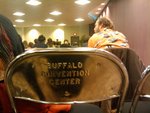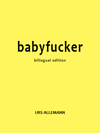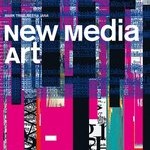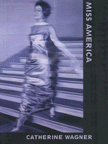This year I read, years after their publication in English, two truly awesome novels.
 The Great Fire of London: A Story with Interpolations and Bifurcations, by Jacques Roubaud (trans. Dominic Di Bernardi) is an incredible project. The interesting formal structure contributed less to the profound effect of the book than I had expected, perhaps because so much else is accomplished in so many other ways. Roubaud describes writing as destructive of memory, not in the sense that Plato’s Thales sees writing as leading to an atrophy of one’s capability to remember. Rather, writing about something we remember is an act that burns away our memory, leaving us only the text and the memory of writing. The project of the book was occasioned by a dream in which Roubaud realized that he had to write a novel called The Great Fire of London. He waited seventeen years, turning over the memory of this dream, before beginning to write this book, which, among other things, describes his inability to write that novel; states the author’s preferences for walking over running and his conception of himself as a walker and swimmer; describes some of his life with and his dealing with the death of his wife, Alix; and affirms that one can write in order to live. The book is transfixing, and unlike anything I have read up to the point. Roubaud, since he completed this book (it was published in 1989), has gone on to write five more volumes. The second of these is now available in English as The Loop.
The Great Fire of London: A Story with Interpolations and Bifurcations, by Jacques Roubaud (trans. Dominic Di Bernardi) is an incredible project. The interesting formal structure contributed less to the profound effect of the book than I had expected, perhaps because so much else is accomplished in so many other ways. Roubaud describes writing as destructive of memory, not in the sense that Plato’s Thales sees writing as leading to an atrophy of one’s capability to remember. Rather, writing about something we remember is an act that burns away our memory, leaving us only the text and the memory of writing. The project of the book was occasioned by a dream in which Roubaud realized that he had to write a novel called The Great Fire of London. He waited seventeen years, turning over the memory of this dream, before beginning to write this book, which, among other things, describes his inability to write that novel; states the author’s preferences for walking over running and his conception of himself as a walker and swimmer; describes some of his life with and his dealing with the death of his wife, Alix; and affirms that one can write in order to live. The book is transfixing, and unlike anything I have read up to the point. Roubaud, since he completed this book (it was published in 1989), has gone on to write five more volumes. The second of these is now available in English as The Loop.
 The Savage Detectives, by Roberto Bolaño (trans. Natasha Wimmer) is quite different: about literary dynamics on a country-wide scale and beyond, and more about social interactions than memory, individual loss, and identity. The book traces the lives of some poets associated with the fictional literary movement “visceral realism.” The fairly short first and last sections of the book are narrated (and purportedly written, as diary entries) by an often surprised, often pedantic, often very sexually occupied poet, García Madero. The middle section provides a kaleidoscope of perspectives on literary and ordinary moments in life throughout the world, in an amazing change ringing of voices. The breadth of the book is incredible, as are the different experiences and viewpoints it offers:
The Savage Detectives, by Roberto Bolaño (trans. Natasha Wimmer) is quite different: about literary dynamics on a country-wide scale and beyond, and more about social interactions than memory, individual loss, and identity. The book traces the lives of some poets associated with the fictional literary movement “visceral realism.” The fairly short first and last sections of the book are narrated (and purportedly written, as diary entries) by an often surprised, often pedantic, often very sexually occupied poet, García Madero. The middle section provides a kaleidoscope of perspectives on literary and ordinary moments in life throughout the world, in an amazing change ringing of voices. The breadth of the book is incredible, as are the different experiences and viewpoints it offers:
Luis Sebastián Rosado, Mexico City DF, July 1976: The question burst from me as if of its own accord: have you slept with María? His reply (my god, what a sad, beautiful profile Luscious Skin had) was devastating. He said: I’ve slept with every poet in Mexico.
Amadeo Salvatierra, Mexico City DF, January 1976: And then one of them opened the bottle and poured forth some of the nectar of the gods into our respective glasses, the same ones we’d been drinking before, which some consider a sign of slovenliness and others the ultimate refinement, since when the glass is, shall we say, glazed with mezcal, the tequila is more at ease, like a naked woman in a fur coat.
Barbara Patterson, San Diego, California, October 1982: Then we would be quiet with the TV on, each of us absorbed in our own scrambled eggs, our pieces of lettuce, our tomato slices, and I would think what life lessons are you talking about, you poor bastard, you poor jerk, what poor lessons did you ever learn, you pathetic leech, you pathetic loser, you fucking asshole, if it weren’t for me you’d be sleeping under a bridge. But I didn’t say anything, I just looked at him, and that was all.
The final part reveals what happened immediately after the first, in which some characters flee north into the desert of Sonora. It is even more horrible that I had imagined, and is a suitable finish for a book that, as its title declares, is about scrutinizing the worst that the world has to offer.










